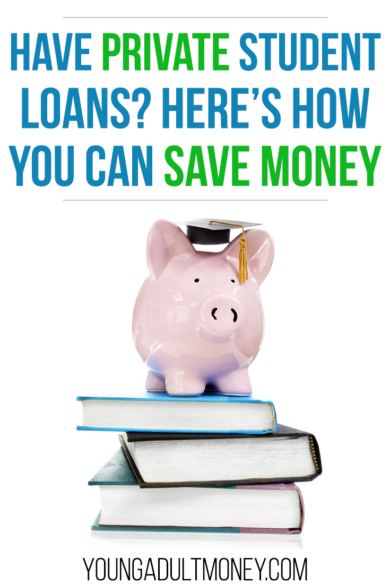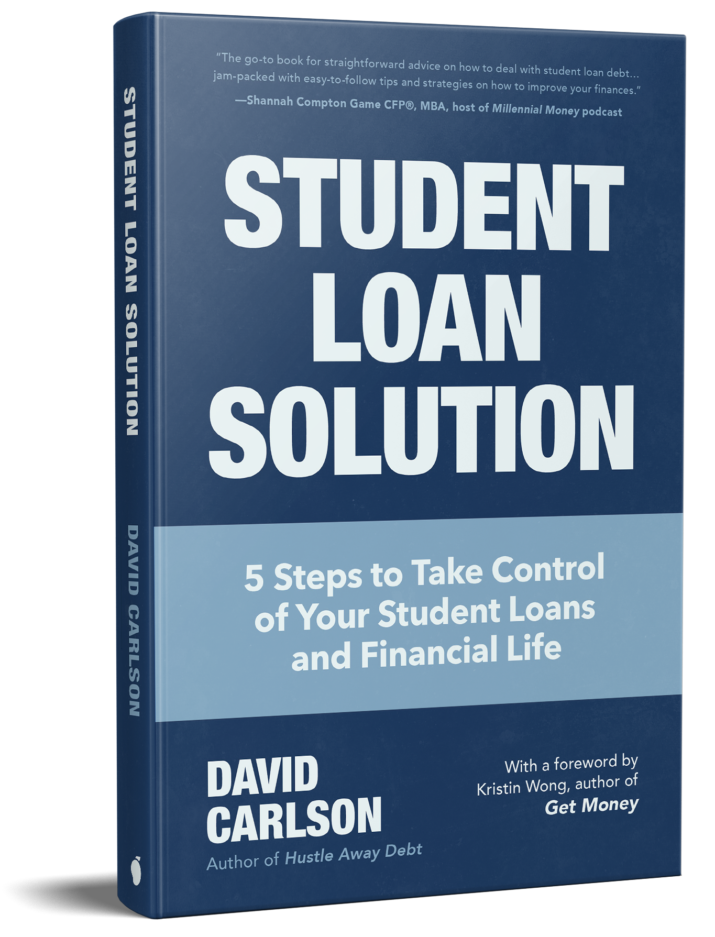 This is a sponsored post on behalf of our friends at Citizens Bank. Despite Citizens Bank’s sponsorship, all opinions and/or advice are provided by YoungAdultMoney.com. #sponsored.
This is a sponsored post on behalf of our friends at Citizens Bank. Despite Citizens Bank’s sponsorship, all opinions and/or advice are provided by YoungAdultMoney.com. #sponsored.
The cost of college keeps going up, which is one reason why we now have over $1.5 trillion in outstanding student loans in the United States.
A majority of student loans are administered by the federal government, but with the cost of tuition – and the cost of living in general – continuing to rise, there are more and more students today who supplement their federal student loans with private student loans.
Having student loans can be a burden, but if you have private student loans there are a couple of strategies you can take advantage of to save money.
Not sure what loans you have? Read this post that explains what you need to know about your loans – and where to find the information.
Let’s first go over the differences between private student loans and federal student loans, then we’ll discuss some strategies you can use to save money on private student loans.
Private Student Loans versus federal Student Loans
The reason people first take out federal student loans and then supplement with private student loans is because federal student loans come with some notable benefits. For example, for subsidized federal student loans interest does not accrue in the following situations:
- While you are in school at least half-time
- During your grace period (the first six months after you leave school)
- During times of deferment
Not having interest accrue can result in big savings, which is why direct subsidized federal student loans are the best option. Unsubsidized federal student loans do not come with this benefit, nor do private student loans.
But this isn’t the only advantage federal student loans have over private student loans. Most federal student loans are eligible for income-driven repayment plans, public service loan forgiveness (PSLF), and other forgiveness options. The option to go into forbearance, or temporarily stopping student loan payments, is another advantage that federal student loans have over private student loans.
If you get laid off, experience a big unexpected expense, or other financially difficult situation, federal student loans are going to offer the most flexibility in repayment. This is why I recommend borrowers prioritize paying off private student loans.
How to Save Money if You Have Private Student Loans
My wife took out private student loans to help pay for undergrad. What we noticed right away with these loans is they were at a higher interest rate than any of our federal student loans. At least one was in the double digits.
Take a look at your private student loans. What is the interest rate? And is it fixed or variable?
Interest costs you money. The higher the interest rate, the more your loans are costing you.
Because private student loans do not offer some of the advantages that federal student loans offer, it won’t hurt you to refinance with a different bank to get a more favorable interest rate. You can get a free rate quote from Citizens Bank to see what sort of savings you could be looking at.
This is a similar strategy that people take when refinancing a mortgage on their home. If they can get a lower interest rate they can typically save money, sometimes thousands of dollars.
If you are confident that you will pay off all your student loans in less than ten years, and are aware and okay with the benefits you’d be giving up by shifting from federal student loans to private loans, it may be worth refinancing all your student loans through a private student loan lender like Citizen’s Bank. They may be able to save you thousands through a lower interest rate.
Take extra caution before refinancing federal student loans, as you will be giving up your right to income-driven repayment plans and potential student loan forgiveness.
Besides refinancing to a lower interest rate, paying off your loans faster than required will save you money. Why? Because interest accrues daily on student loans. The faster you pay down the principal balance of a loan, the less you will pay in interest.
It’s easier said than done, but some things you can to do gain control and improve your finances are:
- Budget – If you don’t already budget and track your spending, now is the time to get started
- Increase Income – Either by looking for opportunities to increase your pay at your 9-5, through a side hustle, or both
- Cut Expenses – Ask yourself: what do I spend money on that could be cut out? Am I spending money on things I don’t care about?
Paying off student loans can be a long journey, but being diligent and taking advantage of strategies like refinancing and paying off debt faster can set you up for long-term financial success.
What strategies or tips have you used to help improve your finances?

